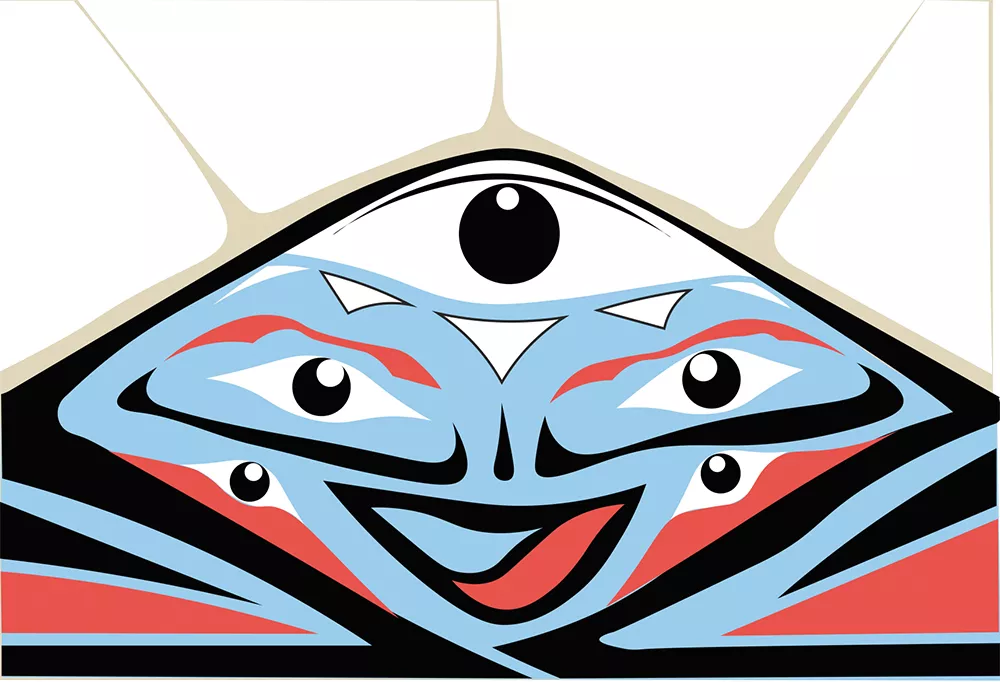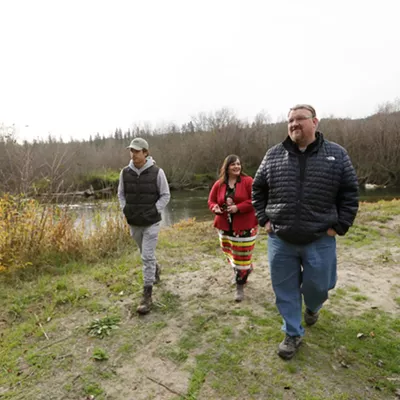Since colonization of the Americas, Native people have been viewed as less than in every aspect that they could. And to this day our sovereignty and agency over our sacred places have been encroached upon by the government and the American people for the past 500 years.
First, we were considered less than human, just like black people were, and that allowed the colonizers to take the first slaves, who were Native, while they took their land and resources for the benefit of the crown. Then the American government turned Native people into refuse, shoved off to barren landfills (known today as reservations) so that settlers could get the most resource-rich lands for their farms and homesteads. In modern times, Natives are perceived as nonexistent, but if they exist they are drunks, not worthy of an honest accounting in American history books or in acknowledging their role in the race discussion in America.
That very simplistic perception of Native people of America does not cover the complexity, but you get the point. Native people are viewed and perceived in whatever way that is convenient for either the U.S. government's agenda or the agenda of the general population to take land and resources. Very rarely are tribes or Native people consulted on issues that impact their economic, social or cultural livelihoods. If and when they are consulted, it's not often that their opinion or recommendation are given serious or honest consideration; they're often an afterthought.
So let's talk about a current, local land-use issue that impacts the Native peoples of this region. Last week, the Spokane Tribe asked Gov. Jay Inslee to halt an expansion of the Mt. Spokane ski park. The park would like to add a new ski lift and seven new runs. The proposed expansion would be in a fairly pristine, unbroken subalpine area. More important, the tribe uses the area to teach their creation stories that connect them to their spirituality.
The Spokane Tribe of Indians are in fact the First Nation of the city of Spokane. They have lived in the Spokane area for thousands of years, but as white settlers came to the Pacific Northwest, the tribe was moved to what is now the Spokane Indian Reservation about 45 minutes northwest. That doesn't mean the tribal people don't visit their sacred places, including Spokane Falls and Mt. Spokane. In fact, they still practice their traditional religion and celebrate their spirituality in those places. Here's a good way to look at it: Mt. Spokane means to the Spokane Tribe what St. Aloysius Church means to Catholics.
Their tribal vice-chair has spoken up, asking for the expansion to be halted. Tribal elders have also joined to defend their sacred space — in a way that is both respectful and legal, and without guns or threats of sedition, unlike those guys in Oregon. It is unclear if the tribe has been consulted in the earlier stages of the decision-making process for the expansion, but I will tell you that it doesn't matter to me.
I hope that this is one of those times that the larger society gives credence and respect to our First Nations. I hope that our great community and Gov. Inslee join together with the tribe to protect their church the way we would want all churches to be protected. ♦
Tara Dowd, an enrolled Inupiaq Eskimo, was born into poverty and now owns a diversity consulting business. She is an advocate for systemic equity and sees justice as a force that makes communities better.





















